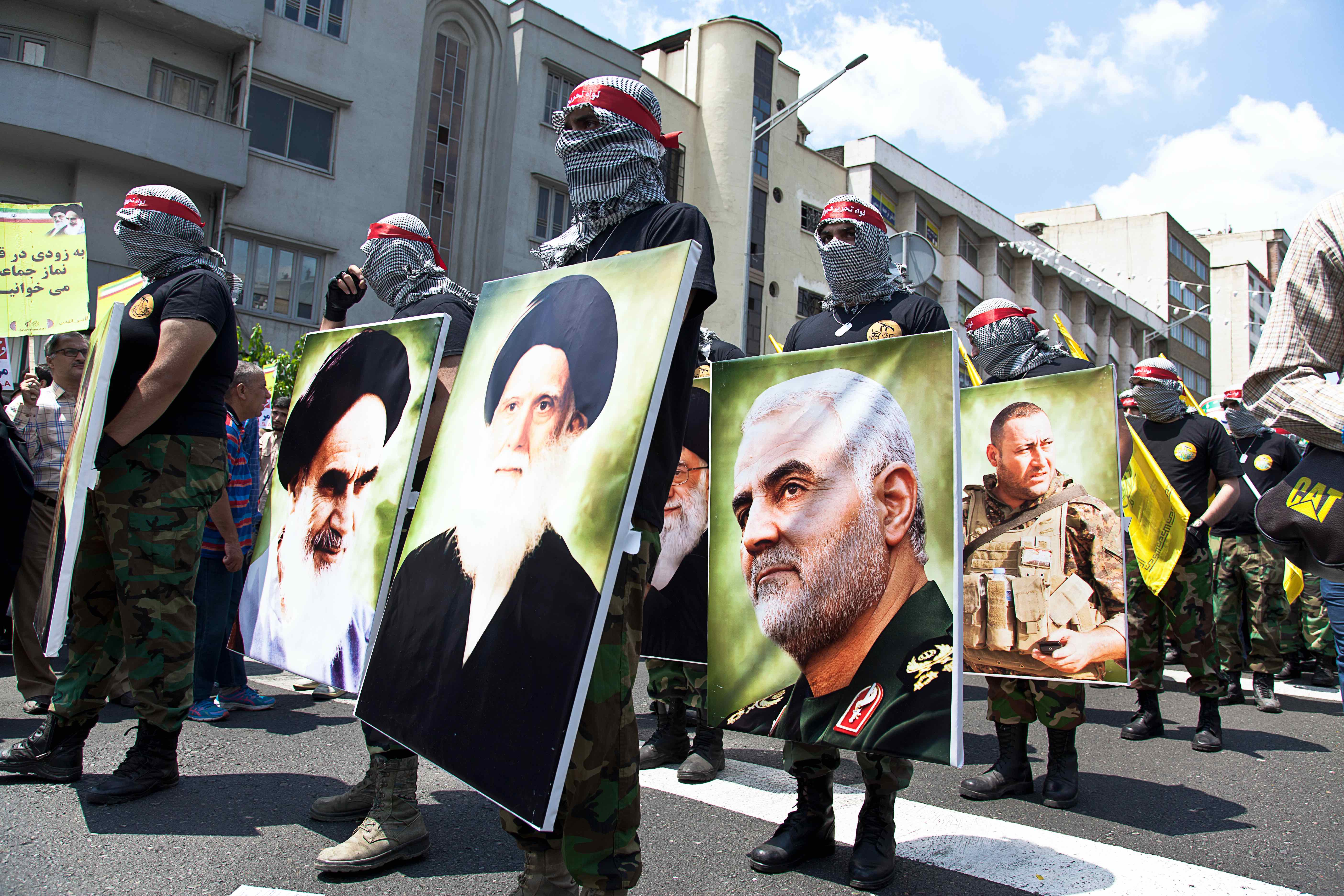L’Iran et ses “proxys” au Moyen-Orient. Les défis de la guerre par procuration

If Iran is a key player in the Middle East, it is in no small part because of its extensive network of armed militia, which it uses as proxies.

This strategy is based on a political, material and sometimes operational support to non-state actors, some of which may have been created by Iran, while others are occasional partners. Since its creation in the 1980’s, the main architect of this strategy is the Quds force, whose task is to coordinate and support those militia’s actions. Moreover, some particularly advanced groups, such as the Lebanese Hezbollah or the Iraqi Badr organization, took an active role in the structuration of the Iranian paramilitary network in the Middle East. After meeting undeniable success in against the Syrian insurgency, in Iraq against the Islamic State, and even in Yemen against the Saudi-led intervention, the “Axis of Resistance” is now facing major challenges: the confrontation with the United States of Donald Trump, but also the threat of a growing political and social unrest, challenging the militia system, in Iran, as well as in countries where these networks are dominant, such as Iraq and Lebanon.
This content is only available in French: L’Iran et ses “proxys” au Moyen-Orient. Les défis de la guerre par procuration.

Available in:
Regions and themes
Share
Related centers and programs
Discover our other research centers and programsFind out more
Discover all our analysesBundeswehr: From Zeitenwende (historic turning point) to Epochenbruch (epochal shift)
The Zeitenwende (historic turning point) announced by Olaf Scholz on February 27, 2022, is shifting into high gear. Financially supported by the March 2025 reform of Germany’s “debt break” and backed by a broad political and societal consensus to strengthen and modernize the Bundeswehr, Germany's military capabilities are set to rapidly increase over the coming years. Expected to assume a central role in the defense of the European continent in the context of changing transatlantic relations, Berlin’s military-political position on the continent is being radically transformed.
Main Battle Tank: Obsolescence or Renaissance?
Since February 2022, Russian and Ukrainian forces combined have lost more than 5,000 battle tanks, a much higher volume than all the European armor combined. Spearhead of the Soviet doctrine from which the two belligerents came, tanks were deployed in large numbers from the first day and proved to be a prime target for UAVs that became more numerous and efficient over the months. The large number of UAV strike videos against tanks has also led a certain number of observers to conclude, once again, that armor is obsolete on a modern battlefield. This approach must, however, be nuanced by a deeper study of the losses and their origin, UAVs rarely being the sole origin of the loss itself, often caused by a combination of factors such as mines, artillery or other anti-tank weapons.
Mapping the MilTech War: Eight Lessons from Ukraine’s Battlefield
This report maps out the evolution of key technologies that have emerged or developed in the last 4 years of the war in Ukraine. Its goal is to derive the lessons the North Atlantic Treaty Organization (NATO) could learn to strengthen its defensive capabilities and prepare for modern war, which is large-scale and conventional in nature.
"Iron Swords" A Military Analysis of Israel's War in Gaza
On October 7, 2023, Hamas' attack, dubbed “Al-Aqsa Flood,” caused a major shock and led Israel to launch the longest war in its history. Operation “Iron Swords” was notable for its unprecedented intensity, both in terms of the massive ground forces deployed and the firepower used.













